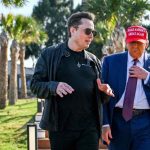The war on climate change, as currently fought, is ultimately a war on humanity itself, and the evidence for this is stacking up by the day. It began with nitrogen fertilizer restrictions1 in the summer of 2022, which alone is driving farmers out of business, and has now progressed to the needless culling of livestock — all in the name of combating climate change.
But what difference will climate have if there’s no food production? Without food, humanity dies. End of story. Of course, the unspoken plan is to replace all of these banned natural foods with genetically engineered lab-created fare, but that’s not going to do our health any favors, so humanity will still be facing extinction, just a slower and more excruciating one.
Culling Cows to Meet Climate Change Goals
In Ireland, the government recently proposed reducing Irish cow herds by 10% over the next three years to meet the European Union’s climate change targets,2 which include a 25% reduction in emissions from farming by 2030.3 The same insanity is creeping into the U.S. as well. The EU is just on a faster track. As reported by Cowboy State Daily, June 2, 2023:4
“Climate activists are coming for livestock producers and farmers. European governments have been targeting the agriculture industry for several years … Ireland’s government may need to reduce that country’s cattle herds by 200,000 cows over the next three years to meet climate targets.
In an effort to reduce nitrogen pollution, Reuters reported the European Union last month approved a $1.6 billion Dutch plan to buy out livestock farmers. Now the Biden administration is targeting American agriculture.
Special President Envoy For Climate John Kerry recently warned at a climate summit for the U.S. Department of Agriculture that the human race’s need to produce food to survive creates 33% of the world’s total greenhouse gasses. ‘We can’t get to net-zero. We don’t get this job done unless agriculture is front and center as part of the solution,’ Kerry said.”
Cattle Promote Ecological Health and Healthy Climate Cycles
With those words, Kerry shows his ignorance and lack of qualifications for the job as climate czar, as properly raised and grazed livestock have a tremendously beneficial impact on ecological health and local climate. As agricultural advocate Kacy Atkinson told Cowboy State Daily:5
“Groupthink happens a lot around the climate change conversation. We get tunnel visioned on one piece of it without considering the full ramifications of what’s going to happen if we remove cattle from the land. Cattle contribute to drought resistance, soil health and wildfire reduction.
Just before cattle were introduced to North America and the industry began raising them, there were thousands of buffalo roaming the plains. Cows and buffalo are both ruminants, which is a type of animal that brings back food from its stomach and chews it again.
These animals’ digestive systems produce methane emissions. Today’s cattle population is similar in numbers to that of the buffalo herds. So, the methane emissions from ruminant animals aren’t anything new.”
Only Certain Agricultural Practices Promote Climate Change
In the 2013 TED Talk above, ecologist and international consultant Allan Savory explains why and how grazing livestock are the solution to climate change. Erratic climate is in large part caused by desertification (when fertile land dries up and turns to desert), which is what current conventional agricultural practices encourage.
This situation can only be effectively reversed by dramatically increasing the number of grazing livestock, Savory says. In essence, it’s not an excess of livestock that are causing the problem, but that we have far too few, and the livestock we do have, we’ve not managed properly.
To improve soil quality, we must improve its ability to maintain water. Once land has turned to bone-dry desert, any rain simply evaporates and/or runs off. The solution is twofold: The ground must be covered with vegetation, and animals must roam across the land. The animals must be bunched and kept moving to avoid overgrazing, thereby mimicking the movement of large wild herds. The animals serve several crucial functions on the land, as they:
Graze on plants, exposing the plants’ growth points to sunlight, which stimulates growth
Trample the soil, which breaks capped earth allowing for aeration
Press seeds into the soil with their hooves, thereby increasing the chances of germination and diversity of plants
Press down dying and decaying grasses, allowing microorganisms in the soil to go to work to decompose the plant material
Fertilize the soil with their waste
The graphic below, which compares the carbon recycling of cows and fossil fuel emissions, is also instructive. The methane cows burp up eventually breaks down into carbon dioxide and water, both of which are taken up by plants. The carbon is then put back into the soil through the roots of the plants. This is the natural cycle, which benefits all life. Yet none of this ever makes it into the climate conversation.
Lesson Learned: The Unnecessary Massacre of 40,000 Elephants
In the TED Talk, Savory recounts how, as a young biologist, he was involved in setting aside large swaths of African land as national parks. This involved removing native tribes from the land to protect animals. Curiously, as soon as the natives were removed, the land began to deteriorate.
At that point, he became convinced that there were too many elephants, and a team of experts agreed. They then went on to cull some 40,000 elephants to reach a number they thought the land could sustain. Yet the land destruction only got worse. Savory calls the decision “the greatest blunder” of his life. Fortunately, the utter failure cemented his determination to dedicate his life to finding solutions.
Since then, studies have shown that whenever cattle are removed from an area to protect it from desertification, the opposite results. It gets worse. According to Savory, the reason for this is because we’ve completely misunderstood the causes of desertification.
We failed to realize that in seasonal humidity environments, the soil and vegetation developed with very large numbers of grazing animals meandering through. Along with these herds came ferocious pack hunting predators. The primary defense against these predators was the herd size. The larger the herd, the safer the individual animal within the herd.
These large herds deposited dung and urine all over the grasses (their food), and so they would keep moving from one area to the next. This constant movement of large herds naturally prevented overgrazing of plants, while periodic trampling ensured protective covering of the soil.
As explained by Savory, grasses must degrade biologically before the next growing season. This easily occurs if the grass is trampled into the ground. If it does not decay biologically, it shifts into oxidation — a very slow process that results in bare soil, which then ends up releasing carbon rather than trapping and storing it.
We’ve also failed to understand how desertification affects our global climate. He explains that barren earth is much cooler at dawn and much hotter at midday. When land is left barren, it changes the microclimate on that swath of land.
According to Savory, two-thirds of the landmass on earth is already desertifying, and “Once you’ve done that to more than half of the land mass on the planet, you’re changing macroclimate,” he says.
Culling Herds Won’t Benefit Climate
In response to the Cowboy State Daily article, Elon Musk tweeted, “This really needs to stop. Killing some cows doesn’t matter for climate change.”6 Indeed, to think that eliminating cattle will put an end to climate woes is rather ridiculous. Climate cycles have always existed and will continue to exist, even if all human and animal life on earth is removed.
Besides, real-world evidence such as that presented by Savory proves we need grazing livestock to normalize local microclimates. So, the true answer to undesired climate shifts would be to normalize local microclimates around the globe, and we do that by taking animals out of indoor factory conditions and out into the fields.
Eradicating food animals and farming is an attack on the least problematic source of greenhouse gas emissions while doing nothing to address far more unnecessary sources.
Eradicating food animals and farming in general tackles the problem from the wrong end. It attacks the least problematic source of greenhouse gas emissions while doing nothing to address far more unnecessary sources. As noted by Pat McCormack, president of the Irish Creamery Milk Suppliers Association:7
“We’re the one industry with a significant roadmap, and, to be quite honest with you, our herd isn’t any larger than it was 25 to 30 years ago. Can the same be said for the transport industry, can the same be said for the aviation industry?”
Loss of Productivity Will Result in Loss of Life
Speaking before the Irish Parliament May 30, 2023, Aontú party leader Peadar Tóibín questioned the minister for environment, Climate and Communication’s rationale for funding these kinds of climate activities and critiqued the plan to reduce herds by some 200,000 cows by 2025 specifically:8
“It’s an incredible threat to the farming sector at a cost of about €600 million,” he said. “Now, a full 25% of beef that’s being imported into the European Union is now coming from Brazil. How is it environmentally friendly to kill large swathes of the Amazon, import that beef from Brazil to substitute for Irish beef that’s been culled here in this state?”
During an interview with Sky News, Australian geologist Ian Plimer also commented on the plan:9
“The Irish know about this from the potato famine. A third of their population died, a third emigrated, and the same thing will happen. They will lose productive people from Ireland, and they’ll go somewhere else. [The proposal can] only end in disaster.”
Climate War Has Destroyed the Environmental Movement
Ironically, while current climate activists claim they’re promoting a “green” agenda, everything they propose suggests otherwise. Instead of transitioning factory farming into a regenerative model, which we know works wonders, they’re willfully ignoring the laws of nature upon which organic and sustainable environmentalism are based. As reported by A Midwestern Doctor in a guest post on my Substack:
“As a longtime environmentalist, one of the most depressing things I have watched in my lifetime has been major polluters hijacking the environmental movement and transforming it from something that fought to against the destruction of our air and water to a fanatical crusade against (harmless) carbon dioxide.
Sadder still, this crusade has gradually become a war and has adopted the same playbook used by the parties which lust for complete power over the citizenry …
[W]ith global warming, because so much was invested into having it be the entire face of environmentalism, once all its predictions failed to materialize, something else had to be done to preserve the investment.
This was, of course, ‘climate change,’ an even more vague and undefinable target that anything and everything could fit into, including every destructive effect of pollution that had nothing to do with carbon dioxide being emitted.
Throughout my lifetime, I have repeatedly read numerous documents either authored by or allegedly authored by government think tanks which have essentially said that to effectively control the population and exploit them (e.g., have a national unity behind a terrible policy), wars and crises are necessary.
In each case, that emergency can be used to justify rapid changes in society [that] no one would otherwise accept, and the minority who go against them can be labeled as traitors and, in one way or another, neutralized.
In the old days, this was done with physical wars … However, when World War 2 happened, a significant issue with that approach emerged — war technology had advanced to the point that physical wars between major powers were immensely devastating and resulted in destroyed infrastructures no one could make money off of once the war ended.
This, along with the threat of mutually assured destruction, led to various alternative warfare methods being developed … In the case of pseudo-wars, the goal was to create a war against an ‘idea’ so the war could never end, and it could be continually used to justify all the policies that normally required a war. In most of the documents I read, the typical targets for a pseudo-war were:
An infectious disease.
Terrorism.
A widespread environmental threat.
Since we all lived through Bush’s War on Terror, it should be clear how that played out, and that it accomplished nothing besides making a lot of money for those invested in it and it diverted a lot of America’s attention toward non-existent terror threats …”
Climate Change Coopted by War Profiteers
Today, all three of these pseudo-war targets are in play, and as noted by Robert F. Kennedy Jr., the infectious disease and climate change narratives have been coopted by the same people who previously profited from the kinetic war machine and the “war on terror,” which ushered in a massive surveillance infrastructure. In a recent interview with Kim Iversen, RFK stated:10
“The climate issues and pollution issues are being exploited by the World Economic Forum and Bill Gates and all of these big Mega billionaires the same way that COVID was exploited.
To use it as an excuse to clamp down top-down totalitarian controls on society and to then to give us engineering solutions. And if you look closely, as it turns out, the guys who are promoting those engineering solutions are the people who own the IPs, the patents for those solutions …
They’ve given climate chaos a bad name because people now see that it’s just another crisis that’s being used to strip-mine the wealth of the poor and to enrich billionaires.”
Climate Change Pseudoscience
In his guest post, A Midwestern Doctor points out that climate science is, by definition, pseudoscience, as it cannot be disproven. It’s also an intentionally vague term, so unwanted fluctuations in climate cycles can be blamed on human causes whenever it’s convenient.
As we’ve seen with the COVID jabs, data that contradict the official narrative are also heavily censored and buried, which prevents people from forming a sensible understanding of what’s happening.
“The best example I ever came across happened during what was known as ‘Climategate,’ where hackers got access to many documents and private emails from leading climate researchers worldwide in 2009,” A Midwestern Doctor writes. “Although the press buried this story, the leaked files showed the following:
• A lot of data manipulation occurred to support the climate narrative; especially once raw data showed a downward trend in global temperatures after 2001.
For example, a decision was made to primarily use temperature monitoring stations in hotter areas (while throwing out many more stations in colder areas) and then using the remaining (hotter) stations to extrapolate (hotter) temperatures for every single station (e.g., those in the colder areas). Similarly, numerous ‘adjustments’ were made to the raw data, which increased the final temperatures.
• Most of the raw temperature data (which the theory of global warming was founded upon) was thrown out, thereby making it impossible for anyone to question or verify the scientist’s work.
In emails, the scientists also discussed working to illegally circumvent Freedom of Information Act laws so their misconduct could not be uncovered?
• Leading climate scientists actively conspired to subvert the scientific peer review process to ensure that papers skeptical of their climate change narrative had no access to publication.
• This scientific malfeasance occurred globally (e.g., in England and in the USA at NASA and the National Oceanic and Atmospheric Administration). Their erroneous results provided the involved scientists with continued funding and were repeatedly cited by officials (e.g., the Obama administration) worldwide to justify public climate policy.”
What’s the Goal?
Like A Midwestern Doctor, I believe climate change is a strategy aimed at increasing population control while simultaneously enriching those behind it. COVID has resulted in a burgeoning biosecurity state headed straight toward a One World Government of unelected leaders, and the climate change narrative rather neatly fits into that scheme. As noted by A Midwestern Doctor:
“Like every other strategy of control, the aims are essentially the same. In this instance, I believe those goals are as follows:
1. Come up with climate-related reasons to control the population.
2. Make a lot of money selling green technologies.
3. Make green technologies that increase the existing control over the population.”
Shortly after the COVID lockdowns were implemented, the World Economic Forum and its allies started talking about the beneficial impacts they were having on the environment, suggesting climate lockdowns might be a viable solution. Fifteen-minute cities are another version of this, as people living inside these cities would not be allowed to travel outside of them without special permission.
Population Control Through Centralization of Resources
As noted by A Midwestern Doctor, controlling populations requires monopolizing life-essential resources. Effective control also involves making essential resources exceedingly costly to minimize competition, while simultaneously being mandated.
Based on that, we can predict that a lot of work will be directed toward the centralization of resources and their management, and that’s what we’re currently seeing, especially with regards to energy.
Most of the green technologies currently available require copious amounts of rare earth elements, of which there is an extremely limited supply. So, as these manufacturing of these technologies increases, the price cannot come down but, rather, will rise. This means many people won’t be able to afford them.
Meanwhile, rare earth mining causes extreme environmental destruction and often requires child labor. The disposal of things like batteries and wind turbines — both of which are toxic waste — further adds to the environmental destruction on the backend.
These facts alone are a tipoff that green energy is not being pushed for environmental reasons. No, it’s about making profits and controlling populations with minimal effort. Electric cars, for example, can be locked from a centralized location if the driver doesn’t have the “appropriate” travel permissions.
They also can’t go as far on a single charge, making long-distance travel a far more time-consuming endeavor. It will probably become increasingly expensive to charge EV vehicles as well, no matter what the source of that electricity is, if for no other reason, simply because energy will be centrally controlled and allocated based on things like social credit scores and carbon footprints.
I understand that many have strong feelings about green energy and the climate “crisis.” Refusing to look at the other side of it, however, is a mistake we may not be able to recover from. It’s important that people understand how the green agenda is using our desire to be good stewards of the earth to further corporate feudalism, which will result in even greater environmental harm and has no respect for human life whatsoever.







